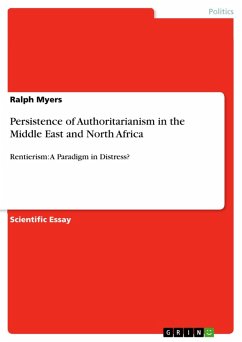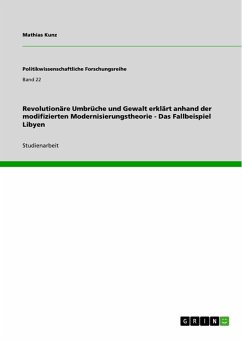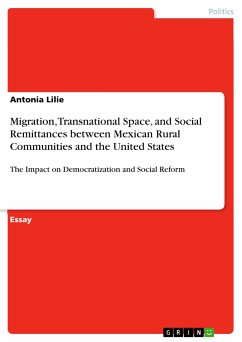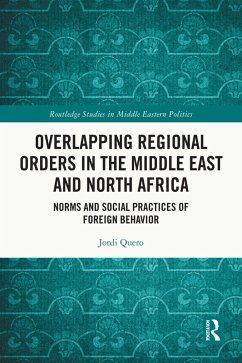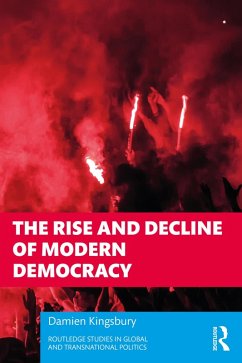
The Impact of Arab World Satellite Television on the Democratisation Process in the MENA States (eBook, ePUB)

PAYBACK Punkte
0 °P sammeln!
Seminar paper from the year 2006 in the subject Politics - Region: Near East, Near Orient, grade: 1,7, University of Freiburg (Seminar für Wissenschaftliche Politik), language: English, abstract: The Arab world is considered to be currently undergoing a great change. A new generation of leaders (for example Bashar al-Asad in Syria, Absallah II. in Jordan, Hamad bin Isa in Bahrain) has to face the urgency of social, political and economic reforms, which have been retarded for a long time. Yet despite a perceivable higher degree of tolerance towards discussion and dissent in some Arab countries...
Seminar paper from the year 2006 in the subject Politics - Region: Near East, Near Orient, grade: 1,7, University of Freiburg (Seminar für Wissenschaftliche Politik), language: English, abstract: The Arab world is considered to be currently undergoing a great change. A new generation of leaders (for example Bashar al-Asad in Syria, Absallah II. in Jordan, Hamad bin Isa in Bahrain) has to face the urgency of social, political and economic reforms, which have been retarded for a long time. Yet despite a perceivable higher degree of tolerance towards discussion and dissent in some Arab countries, despite the aspired renewal and modernisation of economy and politics in their countries, the young leaders did and do not intend any far reaching change of the political system. Nevertheless a public sphere is awakening in the countries of the Middle East, expressing discontent with the present political situation and claiming more political participation and economic freedom. The kifaya movement in Egypt might be a good example for this course of events, which actually is taking place throughout the Arab world. Strict media laws have hindered the formation of a vital civil society in the past decades. The rise of private-owned satellite television channels in the past 10 years has raised the hope that these new media will contribute to the evolving democratisation process, which is perceivably taking place throughout the Arab world. Considering the vital role of mass media in consolidated democracies, the question arises, what contribution mass media, especially television channels, can make to the democratisation process in the countries of the Middle East and Northern Africa (MENA States). Television is considered as a very capacious instrument in this process, because illiteracy is still very widespread, thus audiovisual media embody the most accessible source of information for large parts of the population. Precise and capacious data about viewing habits is hardly available and the few statistics that exist cannot claim full validity and aren't sufficient to confirm a comprehensive theory. As Kai HAFEZ, an expert in Arab media, put this problem: "Whereof is the function of the New Media in the context of political transformation to be measured?" Are there links between television programming and democratisation? What impact does satellite television in particular have on this process? To what extent and under what conditions can satellite television channels contribute to the democratisation process? Are media freedoms necessary prerequisites for a democratic transition or do these freedoms evolve during the democratisation process?
Dieser Download kann aus rechtlichen Gründen nur mit Rechnungsadresse in A, B, BG, CY, CZ, D, DK, EW, E, FIN, F, GR, HR, H, IRL, I, LT, L, LR, M, NL, PL, P, R, S, SLO, SK ausgeliefert werden.




